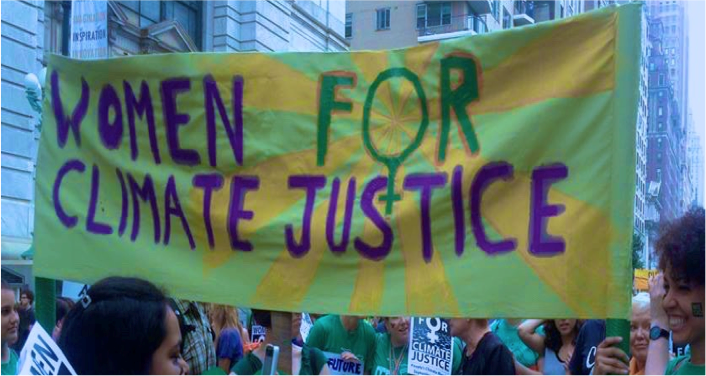 Dr. Seema Javed
Dr. Seema Javed
In the lead up to COP27 in Egypt, the Women’s Earth and Climate Action Network (WECAN) is releasing a new report which finds that G20 countries, who are responsible for almost 80% of global carbon dioxide emissions, lack gender-responsive national climate change policies. This year, the G20 summit will take place in Indonesia from November 15-16, at the same time as the second week of the 27th Conference of the Parties (COP27) of the United Nations Framework Convention on Climate Change (UNFCCC).
The report analyzes the level of gender integration – or lack thereof – in the national climate policies and nationally determined contributions (NDCs) of the world’s largest economies, the G20 group. The report finds that despite the increasing acknowledgement that the impacts of climate change vary depending on gender— and the crucial role of women as drivers of climate solutions— gender has yet to be comprehensively or meaningfully integrated into G20 countries’ climate policies.
A growing body of research has firmly established that greater gender equity leads to better climate outcomes. For example, a one unit increase in a country’s score on the Women’s Political Empowerment Index demonstrates an 11.5% decrease in the country’s carbon
emissions. Yet overall, the majority of G20 countries have not yet integrated gender in their climate policies, and when gender is mentioned by the G20 countries, it is often superficial and unactionable.
Osprey Orielle Lake, Executive Director of WECAN and co-author of the report states: “Integrating gender into climate policy isn’t just beneficial for women and gender diverse people—it leads to critically improved outcomes for our communities, the Earth, and emission targets. If G20 countries want to achieve their climate targets, they need to ensure that women and leadership of Indigenous, Black, and Brown women in particular are included in climate policies, solution projects, and decision-making.”
There are several G20 countries taking steps to develop gender-responsive climate policies. The report points to Argentina, for example, which has made significant progress in incorporating gender and diversity perspectives into climate policy instruments and aims to
prioritize vulnerable communities and social groups. Implementation across the board however, remains to be seen.
The authors of the report call on G20 countries—who exercise considerable global influence—to recognize, understand, and transform unjust dominant social constructs, including systemic patriarchy, colonization, and racism, that continue to impede building equitable and successful climate policy and action led by women and marginalized groups.
“For too long, the world’s wealthiest countries have either ignored or paid lip service to gender integration in climate policy. The consequence has been national and international climate agendas that do not confront the full scope of our global crisis or meet people’s needs. The G20 must urgently support, fund and learn from grassroots women-led efforts to protect frontline communities, advance more sustainable ways of living, and demand just climate policies.” Diana Duarte | Director of Policy & Strategic Engagement at MADRE
“We are not here to save nature; we are nature saving itself. We belong to the Earth, she does not belong to us. G20 countries continue to treat Nature as disposable. If we continue along this path of unraveling the web of life and carelessly burning it in fossil fuels, we will be another species to disappear. We need to listen to the voices of women.” Casey Camp-Horinek (Ponca Nation) | Ponca Environmental Ambassador and WECAN Board Member.
“The unprecedented floods and fires we’ve experienced in Australia have been devastating with the impacts often felt more acutely by women. We’ve seen increased domestic violence following heatwaves and bushfires, and it is likely that the floods will exacerbate homelessness particularly for older women who are the fastest growing cohort of homeless people in Australia, and for single mothers. The impact of climate change on women and girls in Australia has been completely missing from our national discussion and we need to take urgent steps to integrate a gender perspective into climate policy. As governments play catch up following a decade of climate inaction, they need to hold women’s safety and security front of mind.” Victoria McKenzie-McHarg, Strategic Director, Women’s Environmental Leadership Australia (WELA)
 Dr. Seema Javed
Dr. Seema Javed 
 Jubilee Post News & Views
Jubilee Post News & Views




